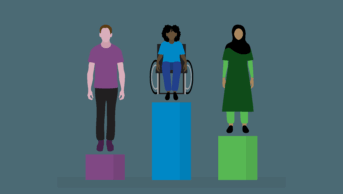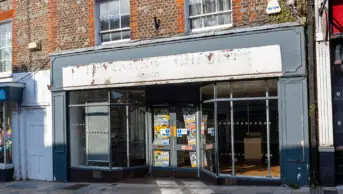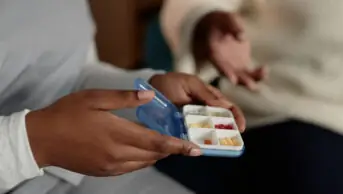
Shutterstock.com
A pharmacist-led study to assess the impact of an outreach programme on people facing severe and multiple disadvantages will go ahead later in 2024, having secured a research grant from UK Research and Innovation.
The ‘Pharmacist and third sector Homeless charity worker Outreach Engagement Non-medical Independent prescriber Rx’ (PHOENIx) trial will be a multicentre randomised controlled trial (RCT), led by pharmacist prescribers in collaboration with third sector workers across Scotland.
It is currently recruiting professionals to deliver the intervention, with patient recruitment expected to begin from December 2024.
The trial will follow two pilot studies of the programme, which involves pharmacists with an independent prescribing qualification and third sector homelessness workers offering outreach to address health (physical health, mental health and problem drug use) and social care (housing, welfare benefits and social prescribing) needs in people experiencing homelessness.
The first pilot study, results of which were published in March 2024, was funded by Scotland’s Drugs Death Taskforce and focused on people in Glasgow who were homeless and had experienced a recent non-fatal street drug overdose.
The other pilot study, which is ongoing, is a National Institute for Health and Care Research (NIHR)-funded trial, targeting people experiencing homelessness in and around community pharmacies in Glasgow and Birmingham.
Commenting on the study, Richard Lowrie, a pharmacist independent prescriber for NHS Lothian, reader at the University of Edinburgh’s Centre for Homelessness and Inclusion Health and co-leader of the NIHR-funded study, said: “It’s a big opportunity for patients and the profession because it’s not been done anywhere before in terms of a definitive trial for this group of people, who are very vulnerable and marginalised. It’s certainly not been done with pharmacists involved.”
“The Glasgow-based work, which was published in March, showed improvement in quality of life, hospitalisation delays and delays to overdose, which we probably haven’t seen before … so that’s a really important signal,” explained Lowrie.
During the trial, NHS pharmacy prescribers and third sector homelessness workers provided weekly consultations across 20 venues in Glasgow, where people experiencing homelessness lived or visited; for example, hostels, charity drop-in centres and soup kitchens.
“The people we are trying to engage with here are people who are very far away from care. They are under-treated, under-diagnosed. They don’t really have a health service which meets their needs,” he said.
“They don’t have any fixed abode, so it’s not as if you can send a letter to them and ask them to come into the doctor’s surgery or the pharmacy. That person maybe hasn’t got the resources or the money to travel to where it is you want them to go, so you have to go to where they are.”
“However, healthcare, if taken to those folks on outreach, is absolutely welcomed by them, and it’s much needed, because of the number of conditions they have and the number of conditions that are untreated … it’s very convenient to be able to prescribe there and then.”
Lowrie added that generalist prescribers were essential to the work, acknowledging that there will be more opportunities for pharmacists to undertake this type of work after the first cohort of trainees qualify as independent prescribers in 2026.
If results of the PHOENix trial show the intervention to be effective at delaying overdose in the context of a definitive RCT, it is hoped the intervention could be rolled out to other cities worldwide.
In England, an initiative to provide socially vulnerable patients, including people who are homeless, with free access to over-the-counter medicines was launched in community pharmacies in north London in April 2024.
An outreach project involving a rapid hepatitis C test-and-treat programme in North Wales has helped more than 100 people, including those experiencing homelessness.


